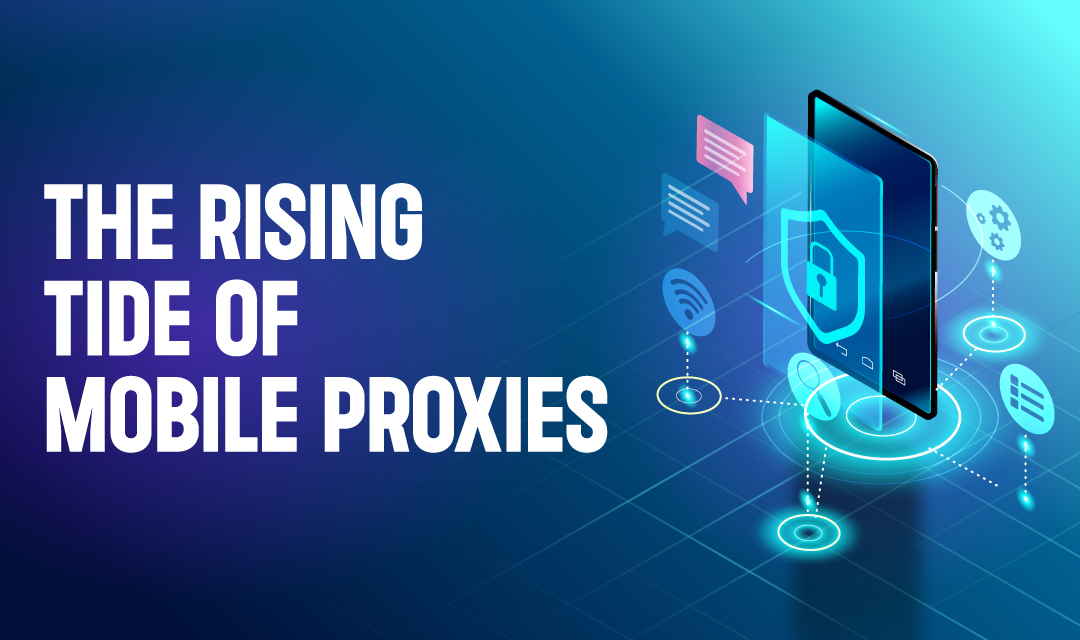Understanding Mobile Proxies and Their Functionality
In today’s digital landscape, online privacy and unrestricted access to information have become crucial for individuals and businesses alike. To navigate this complex web environment, proxy solutions emerge as a potent tool for maintaining anonymity, performing market research, and ensuring secure browsing. This comprehensive guide will delve into the intricacies of mobile proxies and their profound impact on online activities.
What Is a Mobile Proxy?
A mobile proxy is a type of proxy server that routes internet traffic through mobile device IP addresses. It acts as an intermediary between a user’s device and the target server, allowing the user to access the internet through a mobile network. This can be particularly useful for various purposes, such as accessing region-specific content, ensuring anonymity, or collecting data from websites. Such proxies are often employed to simulate mobile device traffic and provide users with the ability to interact with the internet from different locations using mobile IP addresses.
How Do Mobile Proxies Work?
Mobile proxies function by directing traffic through mobile IPs while serving as a middleman between the user and the desired destination. Whether it’s accessing content specific to certain regions or gathering valuable information from the web, mobile proxies epitomize dependability. Here’s a step-by-step breakdown of how they operate:
- User Sends a Request – When you connect to a website using a mobile proxy, your request is first sent to the proxy server.
- Proxy Routes the Request – The proxy server forwards your request to the target website, but instead of your original IP, it uses a mobile IP assigned by a cellular carrier.
- Website Responds – The website treats your request as if it originated from a mobile device, sending data back to the proxy server.
- Proxy Delivers Data – Finally, the proxy server relays the response back to you, ensuring anonymity and accessibility.
How Do 3G, 4G, 5G, and LTE Mobile Proxies Operate?
Mobile proxies channel your internet requests via mobile devices, adopting the IP addresses allocated by mobile carriers. With built-in IP rotation, proxy users appear to be surfing the web from a mobile data network, ensuring a high level of anonymity and minimizing the chances of detection. Each time a user connects, they can be assigned a new IP, reducing the risk of getting blocked by websites.
The Numerous Uses of Mobile Proxies
Whether you’re a digital marketer seeking to perform ad verification, a business analyst conducting competitor research, or an individual striving for privacy, mobile proxies cater to a myriad of use cases. With real mobile IPs, they allow users to bypass geo restrictions and ensure reliable access to localized content. Their primary role is to obscure your digital footprint, providing safety and confidentiality in your online pursuits.
1. Ad Verification
Advertisers use mobile proxies to check how their ads appear in different regions and ensure that they are not subject to fraud.
2. Web Scraping and Data Collection
Businesses rely on mobile proxies to scrape web data without being blocked, as mobile IPs appear more legitimate to websites.
3. Bypassing Geo-Restrictions
Mobile proxies help users access content available in specific locations by masking their real IP with a mobile one from the target region.
4. Social Media Management
Marketers use mobile proxies to manage multiple social media accounts safely without triggering security checks.
Decoding 4G Proxy Solutions
4G proxies are specialized proxies that employ IP addresses from mobile devices linked to specific carriers, offering a robust anonymity layer. Users can benefit from a stable IP address or opt for dynamic IP swapping with each request, enhancing online security and trustworthiness.
Differences Between 4G and Residential Proxies
The fundamental distinction lies in the source of the IP address. With mobile proxies, your internet request manifests as originating from a mobile network, whereas residential proxies display an address linked to a traditional internet service provider.
Why Do You Need a Mobile Proxy?
The internet is becoming increasingly restricted, with businesses and websites implementing stringent access controls. A mobile proxy is essential if you:
- Need unrestricted access to web content across different locations.
- Want to enhance privacy and avoid tracking.
- Are conducting competitive analysis or market research.
- Require a reliable way to manage multiple accounts without bans.
Legal Considerations Around Proxies
Proxies themselves are not illegal; their legality depends on the application. It’s advisable to seek professional legal counsel to ascertain compliance with laws.
Where to Find Reliable Mobile Proxy Solutions
If you’re in need of a trusted mobile proxy provider, consider SimplyNode, your reliable source for premium proxy solutions. Unlock limitless possibilities with our diverse range of residential, mobile, and data center proxies.
Read More From Techbullion



































